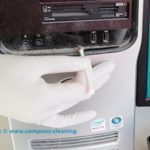A Community Cleanup is a great way of showing that your group cares about its local area and will also encourage others not to litter and to take pride in where they live. This information sheet will give you advice on how to undertake a cleanup safely. It also provides tips and guidlines on how to encourage others to get involved and maximise publicity for your efforts.
Planning ahead!
1. Where are you going to clean up?
You could clean up your local area, a local landmark or take action on a well-known ‘grot spot’. If the area is not public land, you must get permission from the landowner for your activities.
2. How will you do it?
Will the cleanup be a simple litter pick or will you have a theme or set a challenge? Remember that you want it to be as much fun as possible!
3. Risk assessment
Once you’ve picked a place for your cleanup, visit the site and carry out a full risk assessment. This is a careful examination of the possible risks that could cause harm to you or your volunteers. The check sheet in Appendix 1 will help you identify possible risks. If the area carries too many risks for you and your group, choose somewhere else.
4. The cleanup crew
It’s a good idea to get as many volunteers as possible to help with the cleanup – remember many hands make light work! To encourage more people to take part, why not try the following
• Approach local residents either through leaflets, calling at homes or through residents’ groups.
• Put up posters in local shops, supermarkets and libraries.
• Send out a press release to your local media calling for volunteers.
5. Publicity
Cleanups can be excellent community events and great local stories. Let your local media know what you are doing and you may attract publicity and get recognition for your efforts.
6. Tips for targeting the media
Contact the news desk of your local newspaper, radio or television station to inform them of your event. Let them know at least one week before the event so they can put the date in their diary (it’s a good idea to contact them the day before to remind them of your event).
The date and timing of your event have to suit you and your volunteers but, if possible, organise your event at a convenient time for the media. Photocalls in the morning is preferable so deadlines can be met for the evening newspaper or broadcasts.
Provide the media with an interesting angle to ensure your story is covered. Make sure you let the media know:
• Who is taking part (you may want to invite your local councillor)
• When your activity is taking place.
• Where you are cleaning up.
• Why you chose that particular location.
• What is interesting, unusual or unique about your event.
• How you are going to do your cleanup.
Don’t be disheartened if the media do not cover your story. On the day other news stories may take precedence over yours. Just make sure your volunteers have had as much fun as possible – see the media coverage as a bonus.
7. Keeping it safe
Make sure everyone is aware of potentially dangerous items which they should not pick up, as identified during your risk assessment.
Consider the ages of the children involved in your cleanup and make sure that a sufficient number of adults are present to supervise. Before your cleanup, make sure children understand which items are potentially dangerous and should not be picked up. Warn them not to pick up any items that they are unsure about. Don’t let children attempt to pick up heavy or bulky items.
8. Insurance cover
Obtaining Public Liability Insurance is very important and not very expensive. This will provide cover for your legal liability arising from accidental damage or injury that occurs during the event, including damage or injury to a member of the public or their property.
If you represent an organisation or school it is possible that you already have insurance in place, but it is important to check that cleanups are covered under such insurance.





